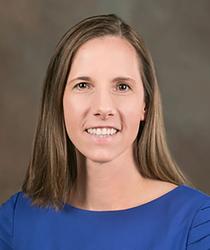
Getting ready for Hurricane Idalia: ALAN’s five key takeaways for businesses
As Hurricane Idalia approaches landfall, ALAN (American Logisitics Aid Network) is busy preparing, and they are encouraging the logistics community to do the same.
With that in mind, we’d like to share five pre-storm takeaways that we feel it’s especially essential for organizations to be aware of. They’re listed below, and we hope you’ll find them helpful.

Kathy Fulton
“Because this has the potential to be an especially destructive storm, we encourage you to visit ALAN’s Supply Chain Intelligence Center (https://www.alanaid.org/map/) and our Disaster Micro-Site (https://www.alanaid.org/operations/) frequently”, said ALAN Executive Director Kathy Fulton. “The first contains a wide variety of resources to keep you in the loop about everything from Hurricane Idalia’s latest path to how local and regional transportation infrastructure is being impacted. The second is where we will share details about some of ALAN’s key activities and how you and other members of the logistics community can help. We will be updating both resources frequently as events unfold”. added Fulton.
“As always, all of us at ALAN are hoping that this storm will be much less severe than predicted and that any damage to life, health and property will be minimal. At the same time we are grateful for the many good people like you who stand ready to help. Thank you for supporting us and those we serve, and please join us in holding good thoughts for the people of Florida, Georgia and the Carolinas in the days ahead”, said Fulton.
Here are the five takeaways:
Don’t put your head in the sand. Make personal safety a priority
If you or some of your business locations are located anywhere near Hurricane Idalia’s path, be sure to monitor the National Hurricane Center and your local National Weather Service forecast for real-time details. And please, don’t ignore any safety warnings that pertain to you or your personnel. This is expected to be a major hurricane with winds of up to 120 miles per hour as well as a massive storm surge and potential for flooding, which means its potential impact is not to be taken lightly. In light of this, please ensure that your employees who work in potentially affected locations have ample time to prepare, shelter in place or evacuate as needed – even if it means closing those operations early or telling employees not to report to work.
Get the latest detailed information about storm-related road closures, facility closures and more by visiting ALAN’s Supply Chain Intelligence Center at https://www.alanaid.org/map/
It should tell you most of what you need to know. But should you wind up needing additional information, please contact us at [email protected]. Time permitting, we will do our best to work with our emergency partners to get you an answer.
ALAN is actively fielding and fulfilling Hurricane Idalia and other major disaster relief requests (including many from the Maui fires). You can view the latest by going to the “What’s The Latest And How Can You Help With Relief Efforts?” section of our Disaster Micro-Site at https://www.alanaid.org/operations
Over the past few weeks, we have been communicating with various emergency management and non-profit partners regarding their hurricane needs. Although there are no “open” requests for Hurricane Idalia support at the moment (although there are many more from other disasters) this situation could quickly change as Hurricane Idalia’s story unfolds. In fact, most of our requests usually come several days or weeks after hurricanes have hit. So stay tuned and stay ready – because as requests for transportation, warehousing, volunteers and material handling equipment come in, we will be posting them promptly. And we will need your help.
If you’d like to “pre- offer” your space, equipment, expertise or services, please visit https://www.alanaid.org/how-to-help/ on the ALAN website to fill out a form
ALAN finds such offers to be hugely helpful, because it lets us know who might be most willing to help us out with our most urgent needs. But rest assured that ALAN knows the difference between a pre-offer and a promise. We’ll still reach out to ask if you’re willing to help with a particular need rather than just assuming you will.
Please don’t self-deploy to disaster-impacted sites, and please don’t participate in product collection drives
Although the intention behind both of these activities is good, they often create more challenges than they solve, because they tend to get in the way of responders who are working to save lives – and add confusion to an emergency supply chain that is already under tremendous strain. If you’re looking for a meaningful way to help, pick a humanitarian organization and collect money for it instead. Such donations will be much more useful and efficient – and far more likely to actually reach storm survivors.









